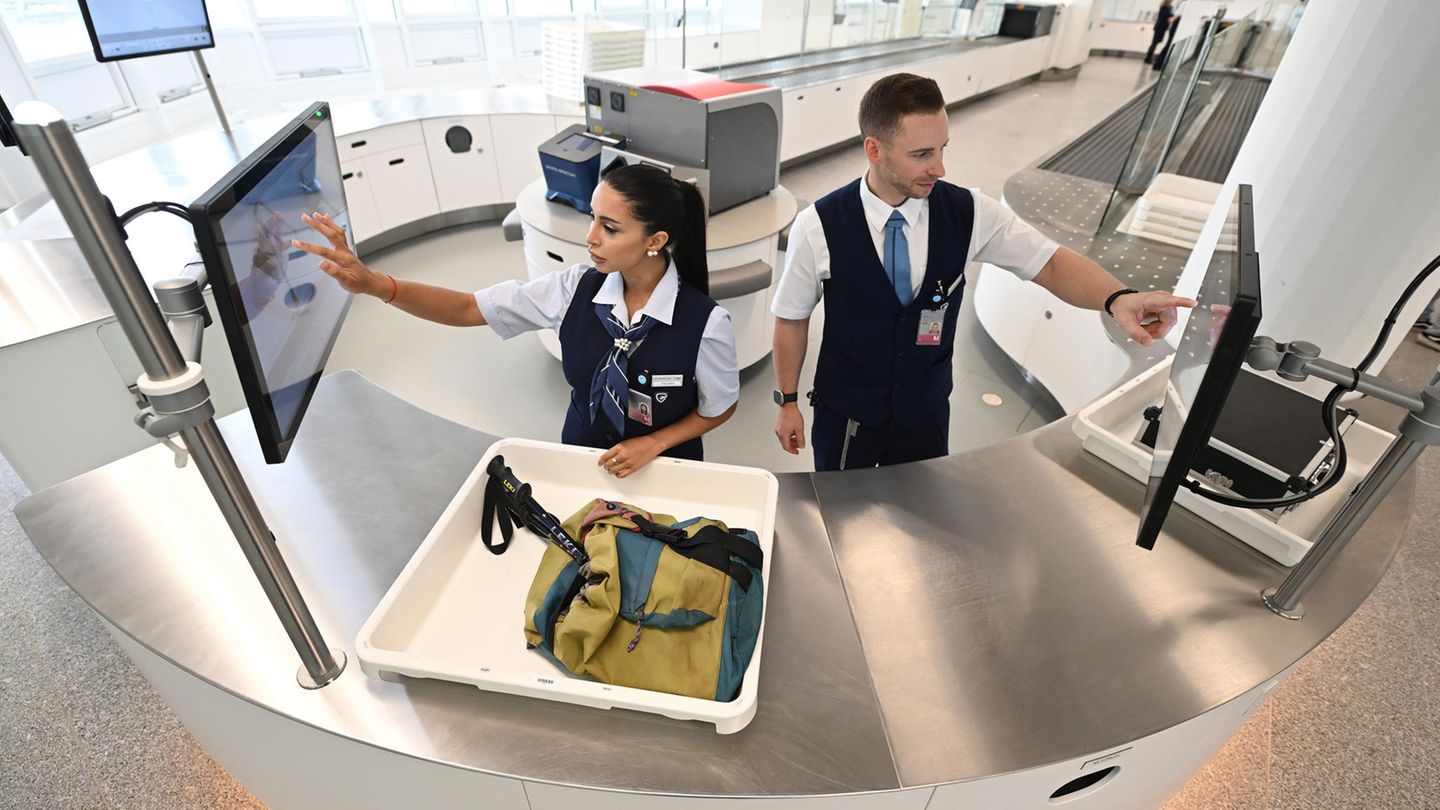A strike by airport security staff largely paralyzed air traffic on Thursday. What do the people who ensure security during passenger and baggage checks at the airport earn?
As soon as the trains start running again, air traffic comes to a standstill: after the end of the recent train drivers’ strike, security staff at the airport are now taking to the barricades for more money. The Verdi union has called on employees in the aviation security industry to go on a nationwide strike on Thursday. Passengers will not be able to fly at eleven airports on the day of the strike. The airports affected are Hamburg, Bremen, Hanover, Berlin, Cologne, Düsseldorf, Leipzig, Dresden, Erfurt, Frankfurt/Main and Stuttgart.
The union justifies the strike by saying that in three rounds of negotiations no agreement could be reached on an increase in the collective wages of security guards at airports. The employers’ offer is “completely inadequate because it in no way addresses the high inflation of the last two years,” says Verdi negotiator Wolfgang Pieper. The employer side, however, criticizes the industrial action as inappropriate.
Verdi negotiates on behalf of around 25,000 employees who work at airports in passenger and baggage screening as well as in other security-relevant service areas. The union is demanding 2.80 euros more wages per hour, higher functional bonuses and overtime bonuses from the first overtime hour onwards; the new collective agreement should be valid for twelve months.
According to the Federal Association of Aviation Security Companies (BDLS), employers are offering four percent more money for this year and three percent for next. There is also an offer for earlier payment of overtime bonuses for part-time workers. According to Verdi, the four percent increase corresponds to only 0.55 euros to 0.82 euros more per hour, depending on the wage group. Next year, another 0.43 euros to 0.64 euros would be added.
The airport staff deserves this
Security employees at commercial airports currently earn 20.60 euros an hour in the highest pay group – as “aviation security assistants”. If they work 160 hours per month, they get a basic salary of 3,296 euros gross. There are also surcharges for night work, Sunday work and holiday work as well as overtime.
But there are also security employees who sometimes earn significantly less. For activities such as boarding pass checks, securing access to security areas and aircraft guarding, the tariff provides for basic hourly wages of 17.84 euros, in some federal states only 16.95 euros. Anyone who passes the exam to become an aviation security guard can increase their basic wage to 18.32 to 19.49 euros, depending on the federal state.
There are even fewer at the lowest pay levels. “Qualified service activities and passenger services that require aviation security-specific and/or airport-specific training” are paid 14.46 euros per hour. “Simple services and passenger services” only cost 13.83 euros. The standard monthly salary calculated here based on 174 hours of work is only around 2,400 euros for simple tasks and 2,500 euros for qualified tasks.
“Security doesn’t come for free”
Similar to the train driver company GdL, Verdi also argues that the conditions for airport employees must improve in order to have enough staff. “There is already a shortage of qualified workers who are willing to work extremely flexibly at the airports around the clock, on weekends and on public holidays – security in air traffic cannot be had for free,” says Verdi negotiator Pieper . “The employees expect fair treatment, fair wages and working conditions from their employers.”
Collective bargaining is scheduled to continue on February 6th and 7th. The employers have set the goal of “agreing binding key points for any collective bargaining that may become necessary by the end of February,” as Frank Haindl, head of the BDLS collective bargaining commission, explained on Friday. Verdi is currently rejecting arbitration proceedings under preconditions.
Source: Stern




